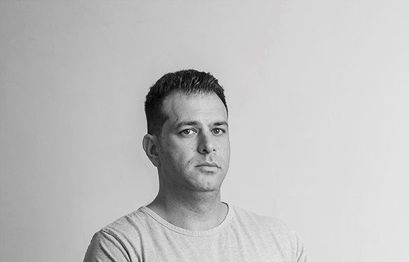Micky Watkins has the bold goal of succeeding where many of the world’s biggest tech companies have failed, and I wouldn’t bet against him.
Mr. Watkins is the founder and CEO of World Mobile Group, billed as the first mobile network based on blockchain and the sharing economy. Using Atala PRISM, a decentralized identity solution built of the Cardano blockchain, World Mobile will provide villages in sub-Saharan Africa with a digital ID. They sell affordable network nodes to local business owners and implement those blockchain-based digital IDs, providing the 78 per cent of the region without internet and digital inclusion with vital connectivity.
A 20-year veteran of the telecommunications industry, including the sale of a company he founded, Mr. Watkins said he has long wondered how to affordably connect people typically not considered by business. The initial idea focused on identity and privacy, but he soon pivoted as he questioned how much people actually value their privacy.
“Everyone wants to use WhatsApp, everyone wants to use Facebook in their quest for connection,” Mr. Watkins said. “People don’t care about giving up those rights.”

He turned his attention to helping people not rising with the tide of connectivity, such as refugees and those living in sub-Saharan Africa. Some of the most valuable tech firms in the world have tried, but failed to create a profitable venture in sub-Saharan Africa even after spending hundreds of millions of dollars. This was happening as mobile providers are losing revenues to the WeChats and WhatsApps. Surely there must be a way to make it work for all parties.
While World Mobile is still completing feasibility studies and proofs of concept, the results are promising, and the solution is brilliant. Working with a village entrepreneur, World Mobile installs a solar panel connected to a streetlight and agnostic access wireless access point. Also included is a second life electric vehicle battery. The package costs the entrepreneur roughly $5,000 and feasibility studies suggest that can be paid off within two years. World Mobile is currently working on POCs in Tanzania, Zanzibar and Kenya.
“You power light, connectivity and identity and you completely transform the village,” Mr. Watkins said. “If I can provide connectivity at a low-cost rate, if I could provide digital identity, that person who is on the end of the connection could actually make use of the connectivity. I figured if I could bring low cost internet and digital identity, then I could connect the unconnected and bank the unbanked.”
The plan debunks several misconceptions many have about sub-Saharan Africa, Mr. Watkins explained. There are plenty of entrepreneurs, even at the village level. Because they own the equipment those business people will go further to make it work.
“If something is yours and it makes you money you tend to value it,” Mr. Watkins said.
There is a strong hunger for connectivity in a region where the average age is 19.7, he added. Those living in the test villages are consuming more than the average revenue per user. Getting quality internet at an affordable price increased demand, so there is enough money for people to pay.
“Ultimately what you are going to see is the biggest gig economy unlocked we’ve ever witnessed on the planet,” Mr. Watkins predicted.
While some have told Mr. Watkins SpaceX’s upcoming Starlink, a low latency, broadband internet system that will be powered by low-Earth orbiting satellites, will render World Mobile redundant. Mr. Watkins doesn’t think so as it will take a while to get equatorial coverage and the systems are expensive. Perhaps they can work together to help the people World Mobile is already serving.
World Mobile is working through several test cases and hopes to launch up to 12 more this year. Mr. Watkins looks for explosive growth to occur in two years.
“We’ll have a massive, massive campaign to connect the half the world that isn’t connected but it will be different. It will be a digital campaign. It will be a campaign where we’re just not installing the infrastructure and doing the last mile maintenance,” Mr. Watkins said. “It’s their network, it’s our network, and we share the rewards.
“What we are doing is reinventing that network. We’re reinventing a new standard that people can connect to. If we do it right all other mobile network operators will jump in.”









